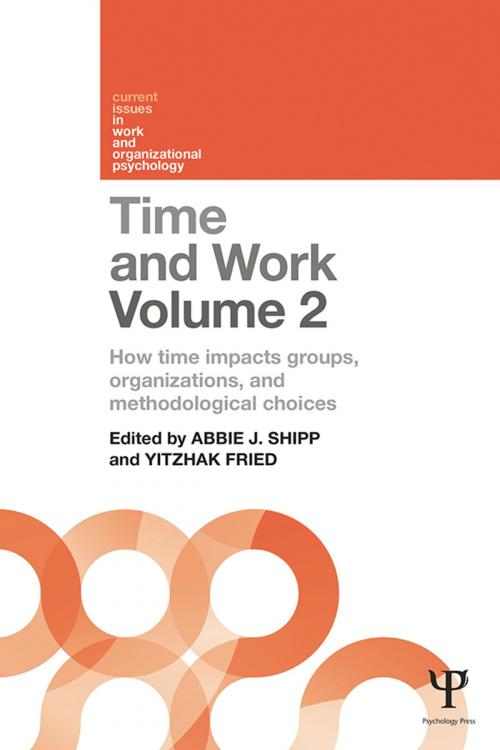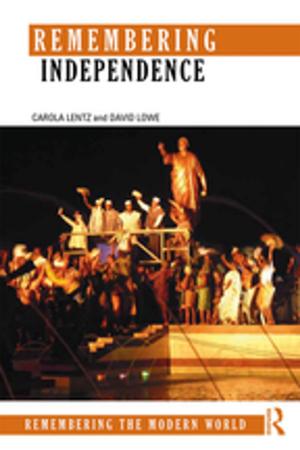Time and Work, Volume 2
How time impacts groups, organizations and methodological choices
Nonfiction, Health & Well Being, Psychology, Occupational & Industrial Psychology| Author: | ISBN: | 9781317756347 | |
| Publisher: | Taylor and Francis | Publication: | February 18, 2014 |
| Imprint: | Routledge | Language: | English |
| Author: | |
| ISBN: | 9781317756347 |
| Publisher: | Taylor and Francis |
| Publication: | February 18, 2014 |
| Imprint: | Routledge |
| Language: | English |
The concept of time is a crucial filter through which we understand any events or phenomena; nothing exists outside of time. It conditions not only the question of ‘when’, but also influences the ‘what, how and why’of our ideas about management. And yet management scholars have rarely considered this ‘temporal lens’ in understanding how time affects employees at work, or the organizations for which they work.
This 2-volume set provides a fresh, temporal perspective on some of the most important and thriving areas in management research today. Volume 1 considers how time impacts the individual, and includes chapters on identity, emotion, motivation, stress and creativity. Volume 2 considers time in context with the organization, exploring a temporal understanding of leadership, HRM, entrepreneurship, teams and cross-cultural issues.
There is an overall concern with the practical implications of understanding individuals and organizations within the most relevant timeframes, while the two volumes provide an actionable research agenda for the future. This is a highly significant contribution to management theory and research, and will be important reading for all students and researchers of Organizational Behavior, Organizational Psychology, Occupational Psychology, Business and Management and HRM.
The concept of time is a crucial filter through which we understand any events or phenomena; nothing exists outside of time. It conditions not only the question of ‘when’, but also influences the ‘what, how and why’of our ideas about management. And yet management scholars have rarely considered this ‘temporal lens’ in understanding how time affects employees at work, or the organizations for which they work.
This 2-volume set provides a fresh, temporal perspective on some of the most important and thriving areas in management research today. Volume 1 considers how time impacts the individual, and includes chapters on identity, emotion, motivation, stress and creativity. Volume 2 considers time in context with the organization, exploring a temporal understanding of leadership, HRM, entrepreneurship, teams and cross-cultural issues.
There is an overall concern with the practical implications of understanding individuals and organizations within the most relevant timeframes, while the two volumes provide an actionable research agenda for the future. This is a highly significant contribution to management theory and research, and will be important reading for all students and researchers of Organizational Behavior, Organizational Psychology, Occupational Psychology, Business and Management and HRM.















